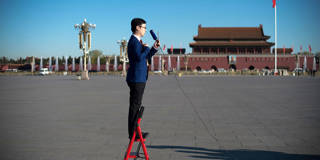As democracies respond to China’s use of information warfare, they have to be careful not to overreact. Much of the soft power that democracies wield comes from civil society, which means that these countries' openness is a crucial asset.
CAMBRIDGE – China has invested billions of dollars to increase its soft power, but it has recently suffered a backlash in democratic countries. A new report by the National Endowment for Democracy argues that we need to re-think soft power, because “the conceptual vocabulary that has been used since the Cold War’s end no longer seems adequate to the contemporary situation.”

CAMBRIDGE – China has invested billions of dollars to increase its soft power, but it has recently suffered a backlash in democratic countries. A new report by the National Endowment for Democracy argues that we need to re-think soft power, because “the conceptual vocabulary that has been used since the Cold War’s end no longer seems adequate to the contemporary situation.”